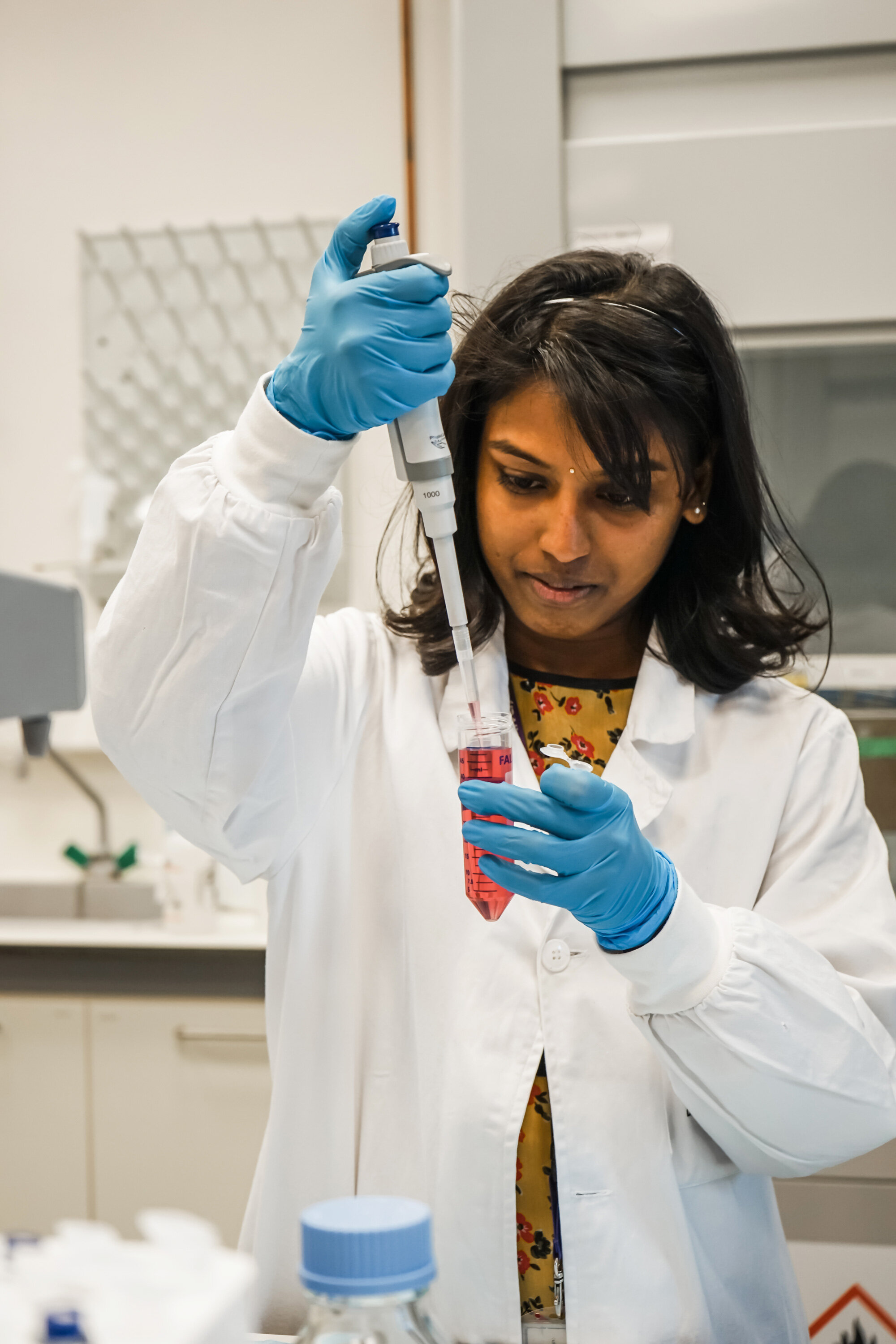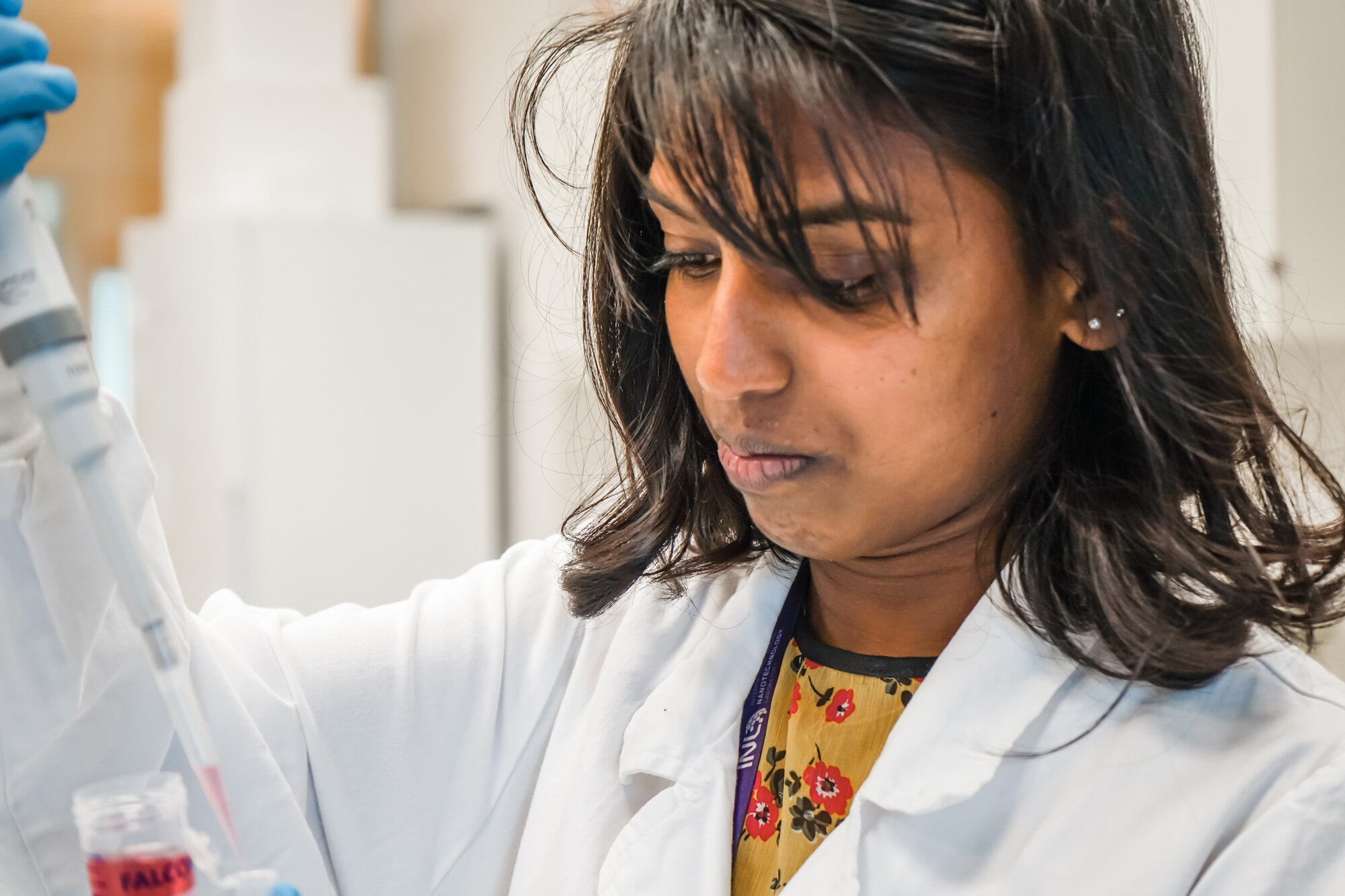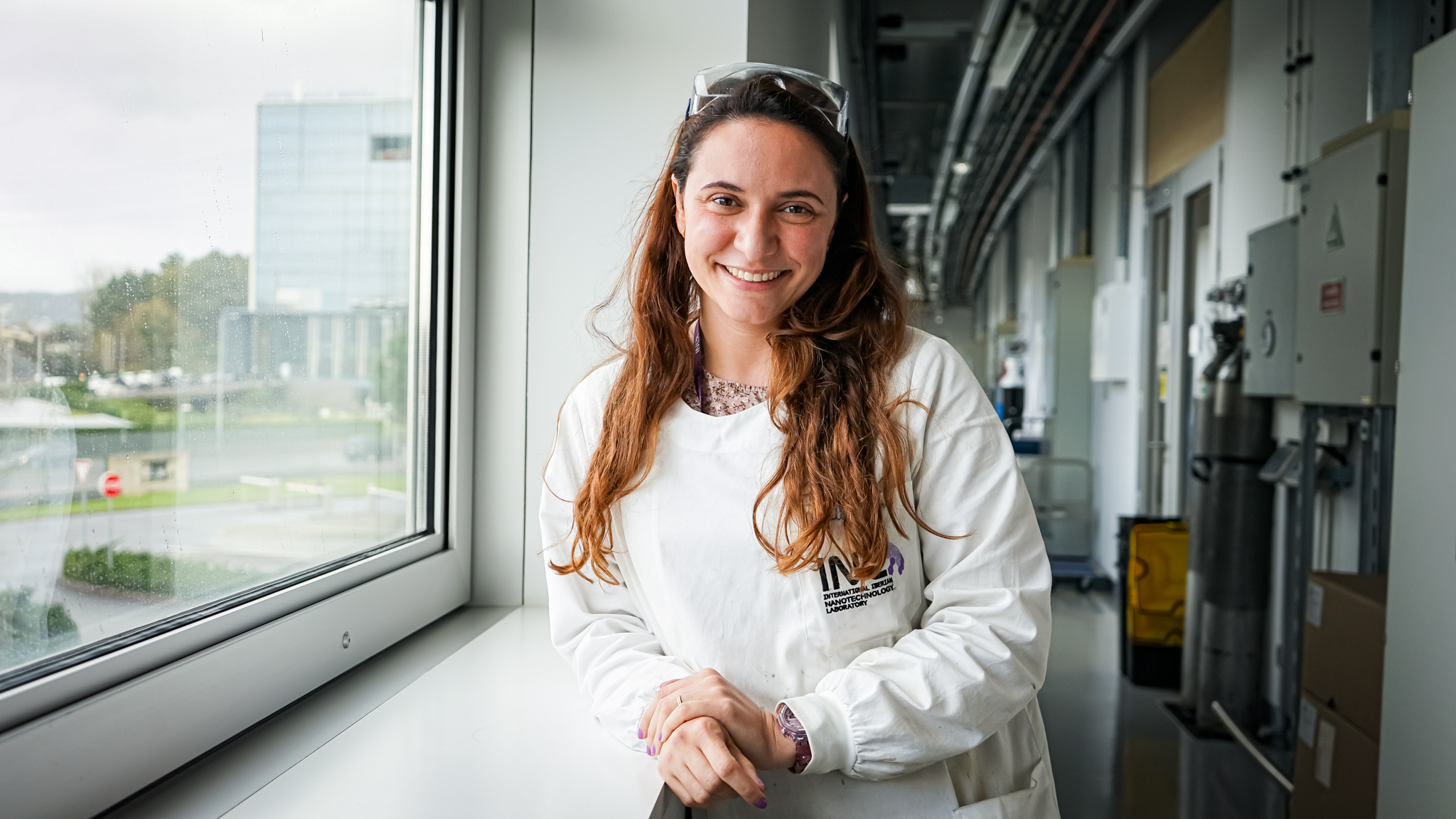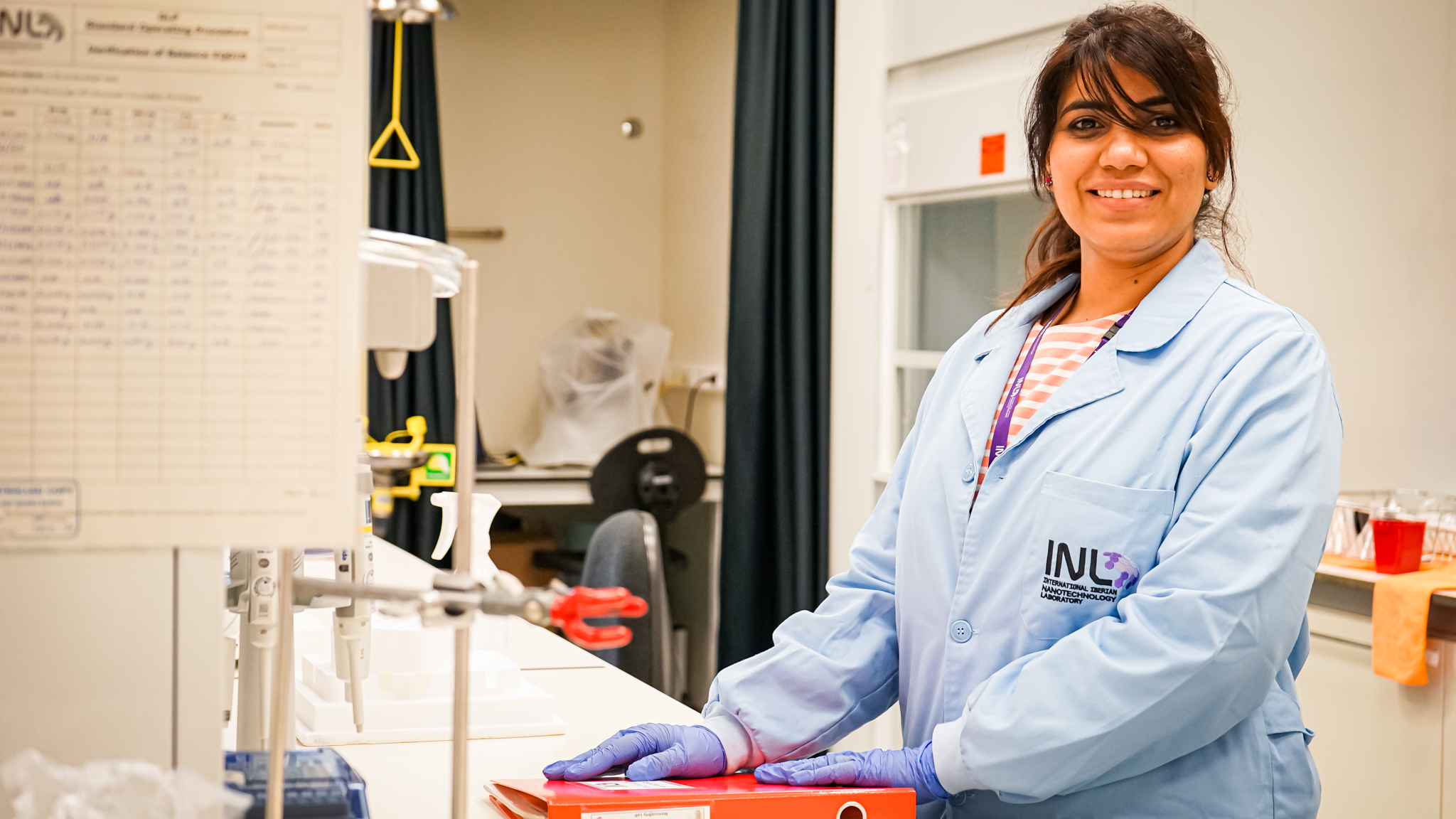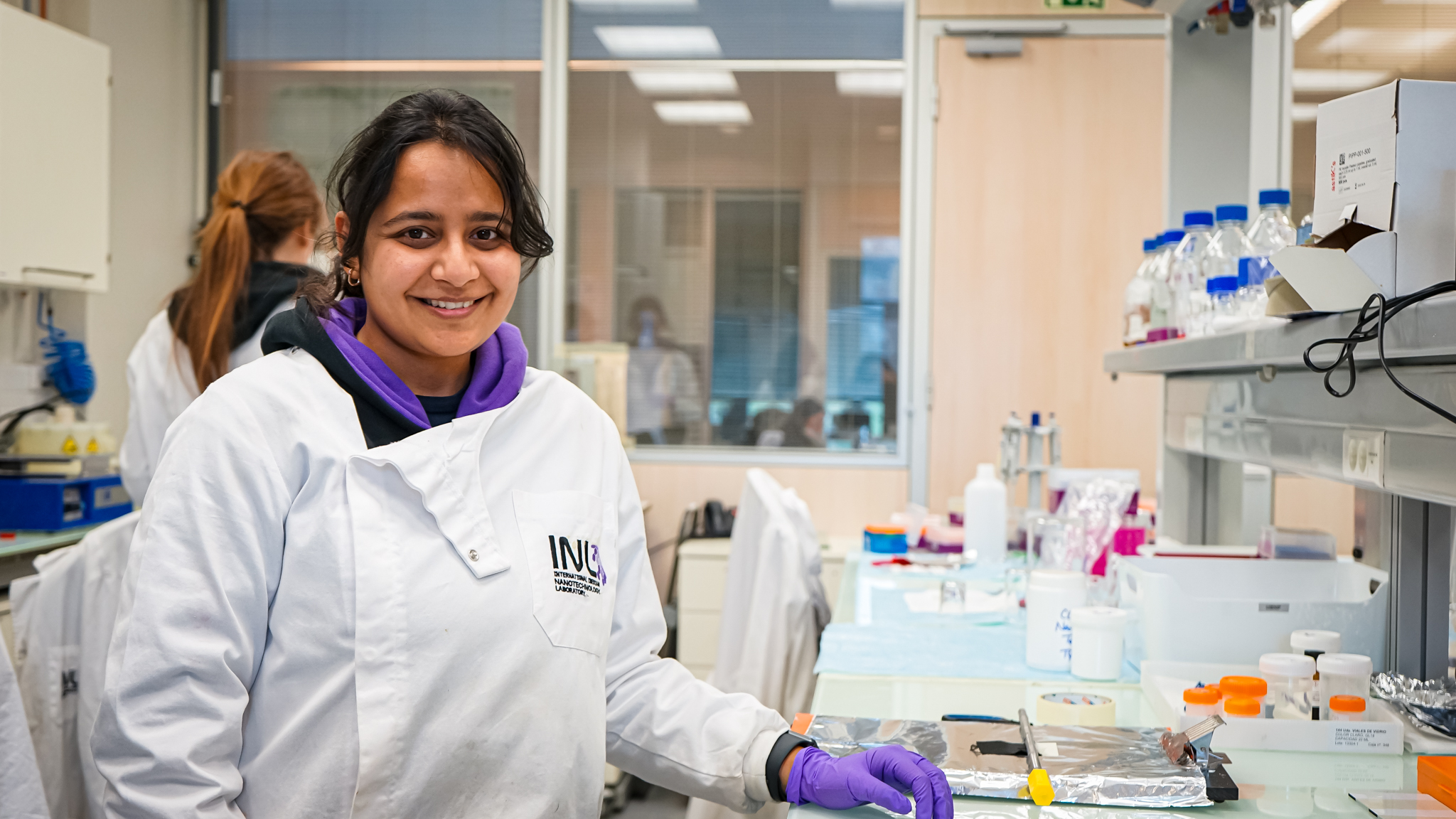
Celebrating WOMEN IN SCIENCE: Interview with Monisha Elumalai
February 5, 2020
The International Day of Women and Girls in Science (February 11) and the International Women’s Day (March 8) are just around the corner and we’ve decided to shine a spotlight on women in STEM with an interview series with Women working in/with Science at INL.
Today we bring you Monisha Elumalai. Monisha is originally from Tamilnadu, India and joined INL as a Research Fellow. Currently working with Marta Prado on an R&D Project on Biosensors for Environmental Applications. She completed her Bachelors in Electronics & Communication Engineering at Anna University, Tamilnadu, India and also holds a Master Degree in Sensor System Technology from the VIT University.
Can you tell us a bit about your career path and how did you come to INL?
I did my Bachelor of Engineering in the field of Electronics & Communication. After that, I continued to do my Master of Technology in the field Sensors System Technology. I did my Master Thesis in the field of Gas Sensors at Indira Gandhi Centre for Atomic Research (IGCAR) which is one of India‘s premier Nuclear Research Centres. This moment was the turning point in my life and in my career and this is where I’ve built a strong interest in Nanotechnology Research. The idea to build a career path abroad came to life and I got selected to work in a project entitled ” DNA Biosensor Based on Optical Detection for Food & Environmental Applications.
What got you interested in the field of Food Quality and Safety? What is the importance of your research?
As we all know Food & Environment are very important to our survival and I wish to develop my work in these areas and gain more knowledge. The main goal of my work in the ” DNA Biosensor Based on Optical Detection for Food & Environmental Applications project is to combine DNA biosensors with nanomaterials, offering the advantage to improve the analytical performance of the devices and also raise the possibility of portability and miniaturization for in situ analysis.
Another main goal is to develop optical (colourimetric) DNA biosensors for environmental monitoring that can also be applied to food authenticity, medical devices and quality control. The DNA sensor currently being developed aims the early detection of DNA from invasive species in river basins. In the near future, alternative optical sensors will also be considered for the same purposes. And finally, our research also involves the detection of Zebra Mussel (ZM), Dreissena Polymorpha – an invasive species that causes huge devastation in native ecosystems and infrastructures damage.
Briefly, what excites you about your work?
One of the most exciting elements of operating in the nanoworld is that things behave differently when you go ultra-small and working with Nanoparticles and DNA create great excitement and interest in the development of my career. I especially enjoy the challenge of working with Gold Nanoparticles, the DNA Functionalization Detection of target DNA and Implementing everything in an optical sensing platform.
Each development teaches us something about the nanotechnology, what it’s capable of, and how we can refine it further. These developments are just the beginning and I’m inspired to be part of this path.
